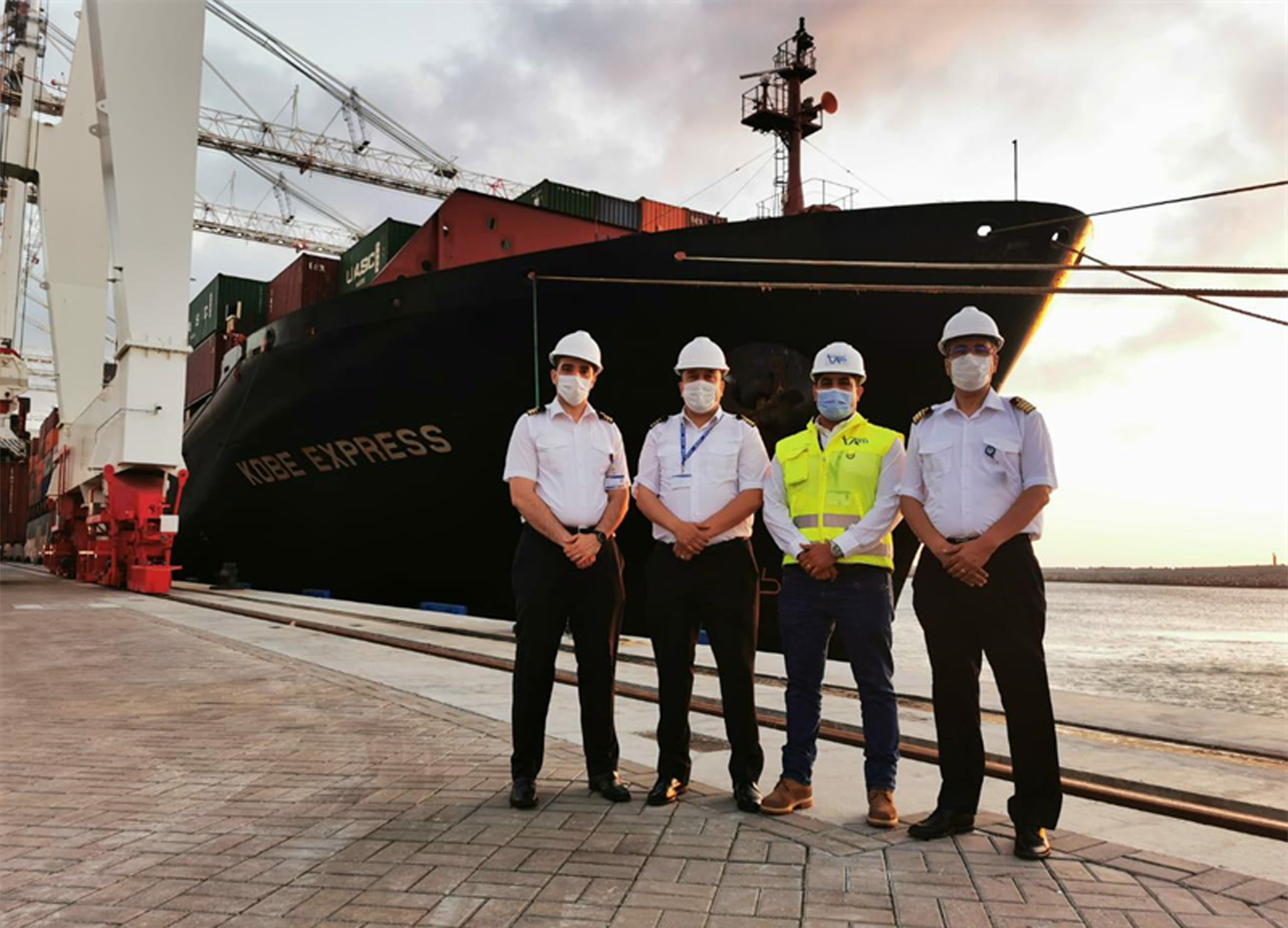
Container ship completes first digital port arrival

Wärtsilä Voyage and Tanger Med habe enabled the first real-life digital port call for the Hapag-Lloyd container ship Kobe Express (Source: Tanger Med)
Hapag-Lloyd’s 4,612-TEU Kobe Express has completed the world’s first digitally controlled port arrival at Tanger Med in Morocco. The container ship is operated by Anglo-Eastern Ship Management.
Wärtsilä’s Navi-Port system enabled the real-time exchange of data between the ship and the largest container port on Africa’s Mediterranean coast, so that the speed of the vessel could be controlled for just-in-time arrival at the end of a voyage from Cartagena in Columbia.
The digital port call is the result of a partnership between Tanger Med Port Authority and Wärtsilä Voyage and is part of the port’s strategy of streamlining its ship traffic management.
Dmity Rostopshin, Wärtsilä Voyage’s general manager Ship Traffic Control, declared: “This is a momentous accomplishment. We have moved beyond pilot and testing projects to real-life applications, and we see this as kick-starting a trend that will make both shipping and port operations more efficient and less carbon-intensive.”
Speaking for Hapag-Lloyd, managing director Digital Business, Ralf Belusa, commented: “This world-first achievement is evidence that we are entering an era of high efficiency and better environmental performance which will benefit all industry stakeholders. Congratulations to Wärtsilä and Tanger Med Port Authority for helping to make this happen.”
Khalid Samir is Harbour Master at Tanger Med. He noted that the successful digital arrival is an important milestone in the port’s strategy of providing high-level services to shipowners and international maritime alliances to ensure port calls in the best conditions.
Bjorn Hojgaard, Anglo-Eastern CEO, revealed that the ship manager is working with Wärtsilä to digitalise the operations of more than 600 vessels in its managed fleet. “We anticipate that the Wärtsilä technology will speed the execution and planning of voyages, and allow us to better monitor fuel efficiency and engine performance for optimal operations,” he said.
